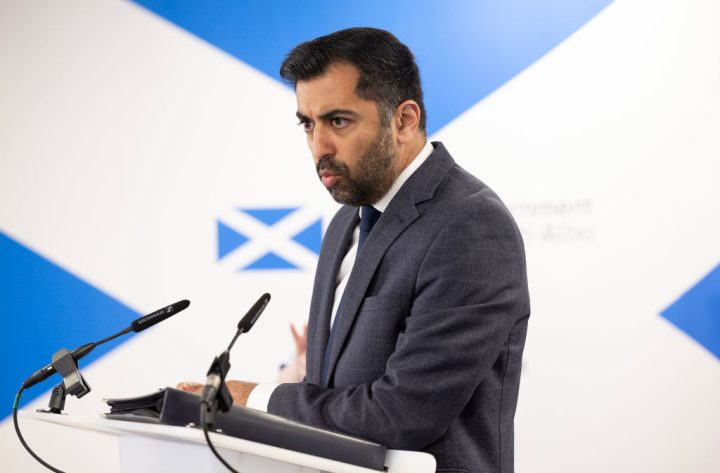It is hard to criticise the SNP government’s recent legislative record in Scotland, if only because there isn’t one. Almost every single flagship measure the party has brought forward since the 2021 Scottish parliament election has either been altered, scrapped, blocked, or faces a lengthy legal challenge. More often than not, it has been one or more of these things.
Plans to restrict alcohol advertising have gone ‘back to the drawing board’ following an industry outcry. The Deposit Return Scheme – a recycling scheme for glass and plastic bottles – has been delayed for at least two years, and the company that had been set up to administer it has been rendered insolvent. The Gender Recognition Reform Bill has been ruled unlawful by the UK government and is currently on course for lengthy legal wrangle. Plans to outlaw human activity in large swathes of Scotland’s coastal waters have also been unceremoniously dumped. The list goes on.
This is yet another attempt by the SNP to stoke up a constitutional controversy
Seemingly not content with this disastrous record of trying to do relatively simple things and failing nevertheless, the SNP government has now set its sights on a far more complex and trickier prize – reform of drug laws. We must keep in mind that this is an area that, thankfully, the Scottish government has no actual power over. Drug control laws are currently and will remain for the foreseeable future – indeed, probably now indefinitely – reserved to Westminster.
Nevertheless, the SNP has decided that legalising the possession of drugs is a policy it wants to pursue. If this has any sensible basis, other than just picking another constitutional battle with the Conservative government at Westminster, it is purely to mitigate the SNP’s own administrative failings.
When the SNP government came to power in 2007, there were 455 drug-related deaths recorded in Scotland. That is a shocking and inexcusable figure, but after ten years of SNP rule, the figure had reached 934 deaths in a year. By 2021 – following 14 years of SNP rule – it had skyrocketed to 1,330 drug-related deaths in a year. That is almost three times the number the Nationalists inherited when they took power and by far the worst rate of per capita drugs-related deaths in Europe. The SNP is a party that has always promoted Scottish exceptionalism, but this was surely not what it had in mind.
Amid a growing outcry, the Scottish government has been casting around in a desperate attempt to find someone else to blame for this national disgrace, but it has been a struggle. Although drug policy itself is reserved to Westminster, health, justice, and policing are all devolved to the Scottish parliament, where the SNP has enjoyed a commanding authority. Even the former First Minister, Nicola Sturgeon, someone not renowned for readily taking responsibility for her errors, was forced to admit the SNP had ‘taken its eye off the ball’.
Yet despite warm words and a £250 million mea culpa in the form of additional funding to help those suffering from drug addiction, there is little sign the situation is improving. In 2022, there were still an appalling 1,092 drug-related deaths in the country.
Against that backdrop, the SNP government has now landed on this new scheme to decriminalise possession. Whether or not this is a sensible policy in practice, the Nationalists will be well aware that it will never happen. Both the Conservatives and the Labour party oppose it, and the latter in particular is unlikely to soften its stance 18 months away from a general election.
Indeed, the manner of the policy launch – on a Friday, late morning, in the first week of recess, by a junior minister – does not suggest, let alone scream, serious. On the contrary, rather than looking at real legislation, this is yet another attempt by the SNP to stoke up a constitutional controversy around an issue where it has, by its own admission, ‘taken its eye off the ball’. In that respect, it is very much business as usual.






Comments